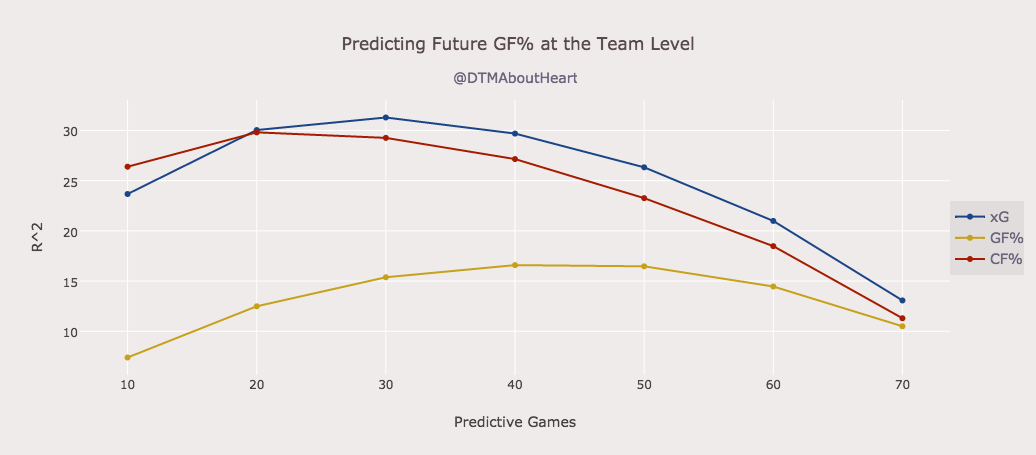Hockey Outsider
Registered User
- Jan 16, 2005
- 9,166
- 14,496
Has anyone (on HF or elsewhere) looked at whether expected goals for (or against) correlate more highly from year to year than actual goals for (or against)? My understanding is, at least in theory, expected goals are supposed to be more predictive of the future.
Anecdotally, I've seen many examples where a player consistently over- (or under-) perform the expected value. That's based on my impressions, not actual evidence, so I'm curious if anyone has looked into this more rigorously.
Anecdotally, I've seen many examples where a player consistently over- (or under-) perform the expected value. That's based on my impressions, not actual evidence, so I'm curious if anyone has looked into this more rigorously.

